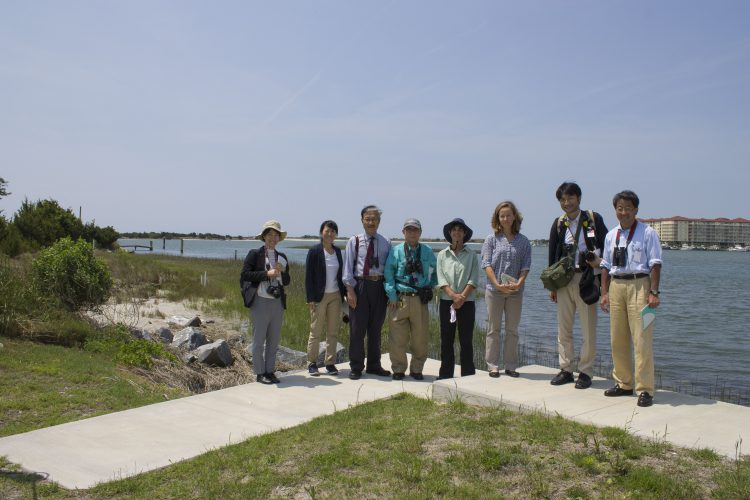A delegation from the Ecosystem Conservation Society of Japan (ECS-J) recently visited the NCCOS laboratory in Beaufort, NC to learn about living shorelines. ECS-J is the largest conservation group in Japan, and works with environmental organizations, government agencies and research groups in Japan and abroad to promote environmental conservation.
The visit was prompted by the recent publication by Davis et al. in PLoSOne, Living Shorelines: Coastal resilience with a blue carbon benefit . Members met with NCCOS scientists, Carolyn Currin and Jenny Davis, to learn more about the use of nature-based infrastructure approaches such as living shorelines for erosion control and carbon sequestration.

Currin and Davis provided the Japanese delegation with basic information on salt marsh function and ecosystem services, particularly the ability of marshes to attenuate wave energy, keep up with sea level rise, and reduce shoreline erosion. Recent NCCOS research on the relationship between shoreline wave energy and the distribution of natural fringing salt marshes (a predictor of where living shoreline approaches will be successful) was highlighted during the visit along with the ability of living shorelines to sequester carbon.
ECS-J members were also given a tour of the two demonstration living shorelines on Piver’s Island. In addition to meeting with NCCOS staff, the group also met with representatives from the North Carolina National Estuarine Research Reserve Program, the North Carolina Division of Coastal Management, Duke University, and The North Carolina Coastal Federation (NCCF). NCCF hosted the delegation, and provided insight into how Living Shorelines have been supported by environmental groups in the U.S.
For more information, please contact Jenny Davis.
